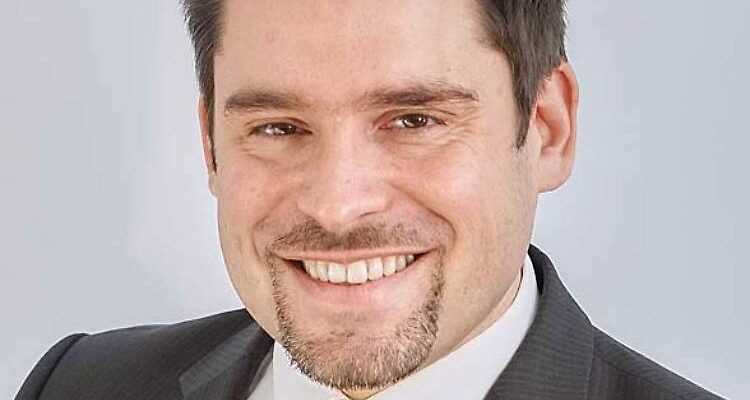Sunday December 12th 2021
Criticism of handling EY complaints
“Watschn for the district court, on both cheeks”
The way in which Wirecard investors were dealt with their lawsuits in the first instance met with sharp criticism from the Munich Higher Regional Court. The prospects for the cheated shareholders for compensation have now “improved dramatically”, says investor lawyer Marc Liebscher.
You have regular hearings at the District Court of Munich I, which has so far dismissed the lawsuits against EY in the Wirecard case. Are you surprised at the criticism of the Munich Higher Regional Court of the decisions of the Regional Court?
Marc Liebscher: The directness of the decision is surprising, but it is not surprising to us in terms of content. We have always been convinced of our arguments and amazed that several chambers of the regional court have rejected them in such a closed manner. We are therefore pleased that the Higher Regional Court is now criticizing it so harshly and is following our line.
Judges usually express criticism of colleagues in a very diplomatic manner. How do you rate the decision of the Higher Regional Court?
Marc Liebscher is a lawyer and capital market expert at the Berlin law firm Dr. Späth & Partner. In cooperation with the law firm Schirp & Partner, he represents several thousand Wirecard shareholders in lawsuits against the auditor EY.
(Photo: Marc Liebscher / Späth & Partner Rechtsanwälte)
Formulated in Bavarian, the decision is a slap for the regional court, on both cheeks left and right. In fact, the OLG attests to the regional court that it has not fulfilled the basic tasks that a court has to fulfill.
What exactly is the OLG accusing the regional court of?
In its decision, the OLG says very clearly that the regional court dealt with the case far too superficially. Specifically, the judges should have appointed an expert to investigate whether the EY auditors acted deliberately by ignoring irregularities at Wirecard. The OLG’s determination is violent that the judges at the regional court have ruled “unhearful” to the detriment of the plaintiff’s investors. In essence, this is the accusation of a violation of fundamental rights.
What does it mean exactly?
The requirement of a fair hearing obliges the court to grasp the essential core of the arguments on both sides of the process. The OLG is of the opinion that the plaintiffs had no chance of being heard by the court with their arguments in the proceedings. This is a clear indication that fundamental principles of the rule of law have been violated here. We have pointed this out repeatedly in our proceedings. But nine chambers with a total of 27 judges at the Munich Regional Court have not dealt with our arguments. Now they have to let the OLG accuse them of having ruled in violation of the rule of law. This failure of the regional court fits in with the line of state failure at Wirecard. The early intervention of the OLG is all the more important.
Why haven’t the aggrieved investors been able to score points with their arguments so far?
The district court was always of the opinion that we would have best dealt with the dispute against EY in our lawsuits. But so far our clients have not been able to buy anything for that. The judges have always demanded that plaintiffs must explain in detail that they only bought EY Wirecard shares on the basis of the attestation. It is of course difficult for investors to prove this, which is why most of the lawsuits were dismissed without the court even having dealt with any specific misconduct by EY. However, we are convinced that from the start it was a completely alien assumption that the OLG is now finally criticizing. Because it is clear: if Wirecard had gone into bankruptcy earlier because of a refused attestation, then the investors would not have invested any more. We have also put forward this argument from the start. So far, however, it has simply been wiped off the table.
From the point of view of the aggrieved investors, the crucial question is: Do you now have a better chance of claiming damages against EY?
We are convinced that the prospects for damaged Wirecard shareholders have improved dramatically. In the previous decisions of the regional court, the problem was that the judges had denied by default that the EY auditors had acted deliberately and thereby harmed the investors. The OLG now criticizes the fact that a possible intent was not adequately examined by the regional court. The report of the special investigator Martin Wambach commissioned by the Wirecard investigation committee or the criminal complaint by the APAS supervisory authority against EY auditors will certainly play a central role. From our point of view, both provide clear indications of intentional violations by EY.
How are the lawsuits going now?
We are counting on the regional court to judge the proceedings from an appropriate point of view and finally to deal with our arguments in the matter.
The Higher Regional Court also refers to the possibility of a test case in order to bundle the numerous lawsuits against EY. Would that be a good option for investors to come to a decision faster?
We very much hope that there will not be proceedings under the Investor Model Procedure Act. That would be extremely disadvantageous for investors because these procedures usually take an absurdly long time, sometimes more than ten years. In the test case at Deutsche Telekom, for example, the first plaintiffs died before a judgment was even given. That is dysfunctional.
The interview first appeared at Capital.de.

